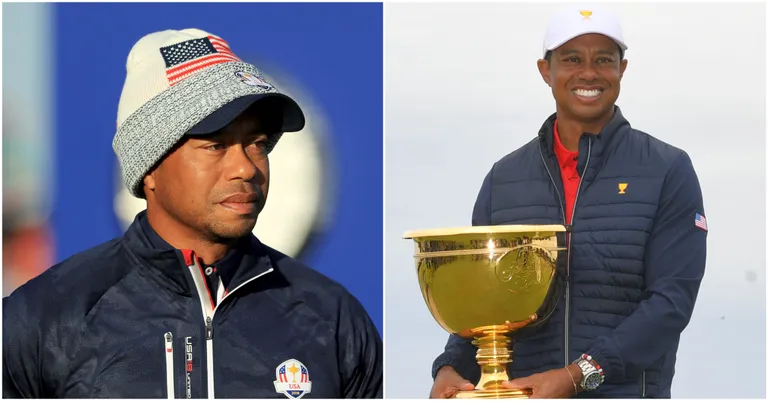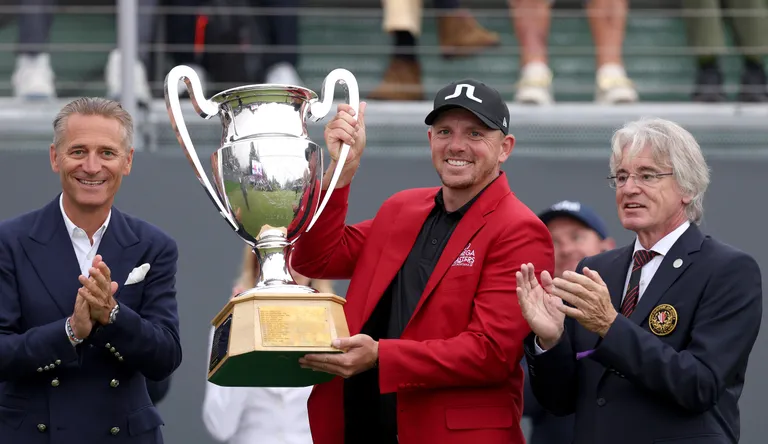Meet the South African Billionaire Who Secretly United the PGA Tour and Saudi PIF on the Golf Course
South African Billionaire Plays Key Role in Bringing PGA Tour and PIF Leaders Together on the Golf Course In the world of professional golf, few events have generated as much intrigue as the groundbreaking rapprochement between the PGA Tour and Saudi Arabia’s Public Investment Fund (PIF). While this landmark moment marks a significant shift in…
South African Billionaire Plays Key Role in Bringing PGA Tour and PIF Leaders Together on the Golf Course
In the world of professional golf, few events have generated as much intrigue as the groundbreaking rapprochement between the PGA Tour and Saudi Arabia’s Public Investment Fund (PIF). While this landmark moment marks a significant shift in the sport’s future, one individual has remained an understated yet pivotal figure in making it happen—South African billionaire and business magnate, Johann Rupert.
Rupert, the chairman of the luxury goods company Richemont, is a well-known figure both in business and in the world of golf. As a passionate golfer and a major player in the golfing ecosystem, he has spent decades building relationships across the global golfing landscape. His involvement in high-profile tournaments, golf events, and private clubs has placed him at the heart of conversations that influence the sport. With a deep love for the game and a network that stretches across continents, Rupert’s role in facilitating talks between the PGA Tour and the PIF has been instrumental.
The context of this collaboration is a complex one. The PGA Tour, a long-standing authority in golf, found itself in a challenging position as Saudi Arabia’s PIF launched LIV Golf in 2021. LIV, a rival circuit backed by PIF’s substantial financial resources, created a rift within the professional golf community. Major players were courted with lucrative contracts, and the global golf landscape was seemingly headed for a split.
Behind the scenes, however, Rupert was using his influence to foster conversations between PGA Tour commissioner Jay Monahan and PIF governor Yasir Al-Rumayyan. Recognizing the potential for a divided future to harm the sport, Rupert quietly arranged informal discussions and meetings between the two sides, many of which took place on golf courses at exclusive events. His unique position as a respected figure in both the business and golfing world allowed him to act as a neutral bridge, urging both parties to find common ground.
Sources close to the negotiations say that Rupert emphasized the need for unity in the sport, pointing to the greater long-term benefits that collaboration could bring. His efforts culminated in a series of face-to-face meetings that laid the groundwork for the eventual agreement to merge LIV Golf’s operations with the PGA Tour, creating a new era in professional golf. By fostering these conversations, Rupert helped bring about a truce that many in the industry had thought impossible.
While much attention has been focused on the financial implications of this merger and the political complexities surrounding Saudi Arabia’s involvement in international sports, Rupert’s contribution stands out as a reminder of how personal relationships and a shared passion for the game can shape monumental outcomes. His quiet diplomacy has solidified his place not just in the world of business but in the history of golf as well.
For Rupert, who has long seen golf as a bridge between cultures and economies, this deal represents more than just a business win. It is a testament to his belief in the sport’s ability to unite people, regardless of their background or geography. As the PGA Tour and PIF move forward in this new partnership, Rupert’s role will be remembered as a key factor in ensuring that professional golf remains a unified force on the global stage.
Though Rupert is known for avoiding the spotlight, his influence in this crucial chapter of golf history cannot be understated. The South African billionaire’s behind-the-scenes efforts have not only helped reshape the professional golf landscape but also set a powerful precedent for how rival entities can find common ground when shared interests—and a love for the game—are put first.



 #GolfMagic”
#GolfMagic”



